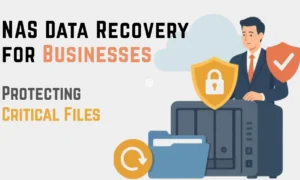IT Consulting is a service professional with information technology (IT) expertise provide. They offer advice and solutions to businesses and organizations to help them make the most of their technology investments. These services include software development, system integration, IT strategy planning, cybersecurity, project management, and more. The main objective of an IT consulting business is to help clients improve their IT infrastructure, systems, and processes, thereby increasing efficiency, reducing costs, and boosting overall business performance. IT consultants work closely with clients to understand their unique needs and develop customized solutions to meet those needs.
Steps to plan out an IT Consulting Services Business
As businesses rely more and more on technology, the demand for IT consulting services continues to grow. Starting an IT consulting business can be an exciting and profitable opportunity, but it requires careful planning and execution. Here is a guide to help you write a successful IT consulting business plan.

1. Executive Summary
An executive summary of an IT consulting business plan is a brief overview of the critical points in the plan. It is typically written for busy executives, investors, or lenders who want to quickly understand what your IT consulting business does, how it will be profitable, and what sets it apart from competitors.
The executive summary should be concise, engaging, and persuasive, highlighting the most critical aspects of the business plan. It should also include the plan’s key points, such as the services offered, target market, competition, pricing strategy, financial projections, etc.
2. Business Description
The business description should provide a detailed explanation of the business, including its mission statement, values, and goals. You should also include information about the legal structure of your business, such as whether it is a sole proprietorship, partnership, or LLC.
Your business description should provide a clear and compelling picture of your IT consulting business and the value you bring to clients. It should be well-written, easy to understand, and demonstrate your expertise in the industry.
3. Market Analysis
Conduct a thorough market analysis to determine your area’s demand for IT consulting services. Determine the size of the market and assess the competition. A SWOT analysis can also help identify the market’s strengths, weaknesses, opportunities, and threats.
Your market analysis should provide a comprehensive understanding of the IT consulting industry and the market for your services. It should be well-researched, data-driven, and demonstrate the potential for growth and profitability in the market.
- Provide a comprehensive description of the IT consulting services you will offer.
- Identify your areas of expertise, such as cybersecurity, software development, network design and implementation, cloud computing, and more.
- Explain how your services will help your clients improve business operations, reduce costs, and increase efficiency.
4. Pricing
Determine your pricing strategy based on your market research, the cost of delivering services, and the value you will provide to your clients. Consider offering different pricing tiers for varying levels of service or pricing packages for specific services.
Here are some factors to consider when determining your pricing strategy for IT consulting services:
- Service Offering
- Target Market
- Competitor Pricing
- Value Proposition
- Overhead Costs
- Profit Margin
5. Marketing Strategy
Outline a marketing strategy to help you reach your target audience. Consider using digital marketing channels like social media, email, and content marketing to generate leads. Attend networking events to connect with potential clients and partners.
6. Financial Plan
Develop a financial plan that includes revenue projections, expenses, and cash flow analysis. Identify the startup costs, such as equipment, software, and office space. Estimate your revenue based on your pricing strategy and market analysis. Determine your operating expenses, including salaries, rent, and other costs. Use this information to create a realistic cash flow forecast.
7. Operations Plan
Develop an operations plan outlining how to deliver your services and manage your business. Determine how you will hire and manage employees, develop internal processes and procedures, manage vendors and partners, and handle customer service and support. Your services, manage your team and operate your business.
common IT consulting services to consider including in your business plan
- IT Strategy Planning: Help clients develop a comprehensive IT strategy that aligns with their business goals and objectives.
- Software Development: Design, develop, and maintain custom software applications to meet each client’s unique needs.
- Systems Integration: Integrate new software and hardware systems into existing IT infrastructure, ensuring compatibility and efficiency.
- Cloud Services: Provide cloud computing solutions, such as cloud storage, software-as-a-service (SaaS), or infrastructure-as-a-service (IaaS).
- Cybersecurity: Assess and mitigate cybersecurity risks, including vulnerability assessments, penetration testing, and security audits.
Conclusion
Writing a business plan for your IT consulting business is essential to success. It helps you identify your target market, competition, pricing, marketing, financial projections, etc. Follow these guidelines to create a comprehensive IT consulting business plan to help you launch and grow your business.
































































